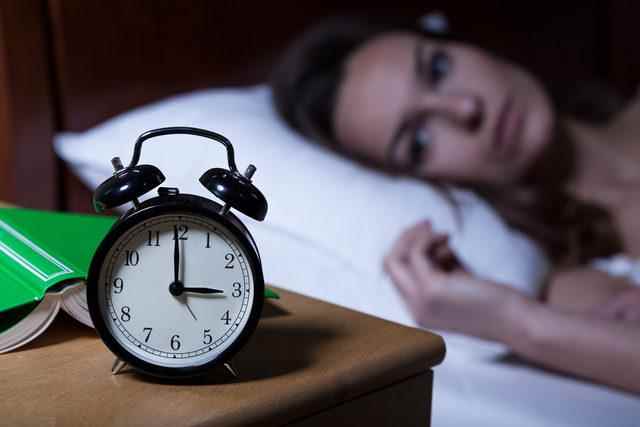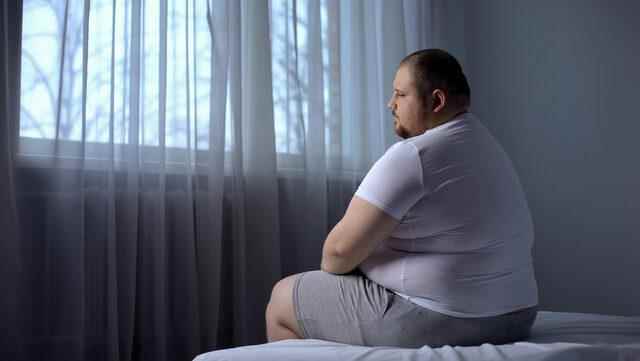Acıbadem International Hospital Nutrition and Diet Specialist Elif Gizem Arıburnu Oğuz stated that the average weekly weight loss in an ideal and healthy weight loss program is between 1 and 1.5 kilograms, “However, sometimes weight loss does not occur despite dieting. If there are no diseases such as insulin resistance, hypothyroidism and Cushing’s syndrome, difficulty in losing weight can be caused by some faulty habits and a wrong diet. Healthy weight loss can only be achieved with a proper diet and physical activity.
It is important not to go out of the diet as much as possible, to prevent tendencies that will disrupt the nutritional balance, to resolve emotional or stress-related eating attacks with professional support, if necessary, in order to gain permanent nutrition habits in the long term. So, which of our mistakes can slow down weight loss?
IF YOU MAKE THE WORD ‘DIET’ WRONG
The reason you have trouble losing weight may be because you misunderstand the word ‘diet’. “You may think you are dieting by starving yourself. It is enough to starve for 24 hours to see that you are losing weight on the scale. However, this is not a real weight loss”. At this stage, the organism converts the muscles into energy in order to capture the energy necessary for itself.

That’s why the person who doesn’t eat during the day starts to think, ‘I don’t eat anything, but I still can’t lose weight’. In order to avoid this misconception, it will be the best decision to implement an adequate and balanced nutrition program that is calculated according to your needs, suitable for your lifestyle, and that you can maintain.
IF YOU SIT AT A TABLE OR A Couch ALL DAY
When you sit still all day, your body has a hard time burning calories. In this case, the calories you burn will likely be less than the calories you take in. In order to lose weight in a healthy way, proper exercise for your body is a must. When exercise is done regularly, it can be beneficial in many ways such as maintaining ideal body weight, being durable and providing flexibility. Remember, at the end of the day, 70 percent of your weight is reduced by diet and 30 percent by exercise.

IF YOU ARE INTERESTED IN EVERYTHING OTHER THAN FOOD
Trying to finish your plate while chatting with your friends? Or are you watching a movie with your plate in your hand? In summary, if you’re concerned with everything but food, ‘not focusing on your meals’ may be responsible for your trouble losing weight! The ‘intuitive eating’ technique, which involves slowing down, eating without distractions, enjoying every bite while listening to natural signals that tell your brain when your body is full, is one of the healthiest weight loss tools.

Numerous studies show that intuitive eating can contribute to weight loss and reduce the frequency of binge eating. When you consume your food by chewing slowly and thoroughly on a table that is not in front of the screen, trying to notice the colors, smells, tastes and textures, when you stop eating the moment you realize that you are full, you perform the majority of the ‘intuitive eating’ behavior and contribute to the reduction of your weight.
IF YOU FORGET TO DRINK WATER
When the body is dehydrated, or in other words, the amount of water consumed is not enough, the working tempo of digestive enzymes and intestines slows down. A slowed digestive system can also cause a decrease in calorie burning, a slowdown in fat burning, and as a result, weight gain or inability to lose weight. According to the general guidelines of scientific organizations; A healthy adult needs to drink approximately 35 ml of water per kilogram of weight per day. For example, it is of great importance for a person weighing 50 kilograms to drink at least 1.7 liters of water per day.

IF YOU HAVE BEEN DIETING FOR A LONG TIME
Being on a ‘diet’ for too long can also prevent you from losing weight. If you’ve been losing weight for months, maybe you’ve reached a resistance point. In this case, you may need to take a break from dieting. During these plateau periods, you can try increasing a few hundred calories a day, sleeping more, lifting weights to get stronger and gain more muscle. During your break, aim to maintain your body fat level for 1-2 months before you start losing weight again.

IF YOU PREFER LARGE PORTIONS
You can control excessive calorie intake, and therefore your weight, by adjusting portions. The portions of the meals you order out are generally more than the healthy recommended amount. For example, the steak (250 grams) you order at a restaurant may contain three servings of meat. Moreover, it is often served with french fries or pasta, which significantly increases the calorie intake. Don’t try to finish your entire meal to keep your portions in check. Take care to eat your food slowly, leaving your fork occasionally. Replace the potato that comes with your meal or high-carb and fatty options like this with salad alternatives.

IF YOU ARE NOT SLEEPING ENOUGH
While the level of the ghrelin hormone, which increases appetite and therefore food intake, in the body increases due to sleep disorders, the leptin hormone, which has the opposite effect, is suppressed. As a result, the risk of becoming obese increases. Nutrition and Diet Specialist Elif Gizem Arıburnu Oğuz said, “Consume eggs, fish, unroasted and unsalted nuts to eliminate the sleep barrier that causes you to lose weight. These foods make it easier for you to fall asleep and are the highest sources of the hormone melatonin, which is known to help you stay asleep longer.

IF YOU EXERCISE TOO MUCH
According to the research; When too much physical activity is done, the body responds by stopping the burning of calories. For this reason, although people who exercise excessively lose weight in the short term, there is no weight loss in the medium and long term. Nutrition and Diet Specialist Elif Gizem Arıburnu Oğuz stated that extreme sports program alone is not enough to lose weight and negatively affects health, “To lose weight, diet should be done together with sports. Since it is the most effective sport, care should be taken to walk regularly to lose weight. Thanks to the fact that walking is a low-weight and long-term sport, it accelerates fat burning without causing stress in the body. By walking for at least 45 minutes a day, you can both accelerate weight loss and take a step towards a healthy life.

IF YOU EAT TOO CLOSE TO BED
Eating late at night can raise your body temperature, blood sugar and insulin levels, which can lead to storage of what you eat and your inability to lose weight. Therefore, try to finish your meal at least 3 hours before bedtime. Be mindful of snacking after dinner, as watching TV or using a computer will inadvertently consume more calories.
IF YOU ARE IN STRESSED SITUATIONS
Stress releases another hormone called cortisol, which orders the adrenal glands to release glucose into the blood and increase the brain’s use of glucose for energy. Nutrition and Diet Specialist Elif Gizem Arıburnu Oğuz pointed out that these hormones do not return to their normal levels until the stress passes, and said, “If the stress does not pass, the nervous system continues to trigger physical reactions that can eventually cause inflammation and damage to cells. To reduce and manage these problems, you should reduce your consumption of caffeine, refined carbohydrates and delicatessen products, while also dedicating time to meditation and exercise.” says.
